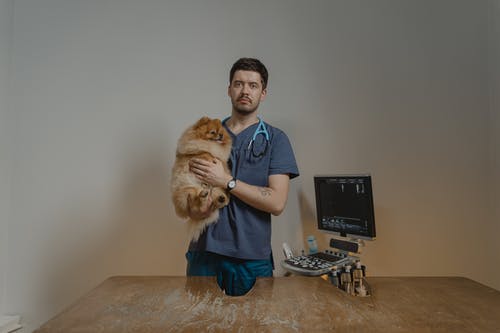
Immunizations are fundamental in safeguarding our pets from harmful and potentially deadly diseases. This holds for our canine companions more than anything. Understanding the importance of regular pet vaccinations can lead to your dog’s healthier, happier, and longer life.
Understanding what vaccinations are
- Vaccinations, in essence, train your dog’s immune system to fight off disease-causing organisms.
- There are two main types: the live-virus vaccines and the inactivated (killed) vaccines.
- Vaccinations stimulate the production of antibodies, which help the body fend off diseases.
The Historical Significance of Pet Vaccinations
Evolution of Pet Vaccinations
- The Early Stages: Vaccinations trace their origins back to the 1700s when a British physician, Edward Jenner, noticed milkmaids who had contracted cowpox did not catch smallpox. He experimented by injecting a small boy with cowpox and then exposing him to smallpox. The boy did not fall ill, marking the first-ever successful vaccination.
- Development of Canine Vaccines: The evolution of pet vaccines began in earnest in the mid-19th century when French scientist Louis Pasteur successfully developed a vaccination for chickens against cholera. He later created a vaccine against canine rabies, the first major vaccine developed for dogs.
- Refinement and Modernization of Vaccines: Over time, the process of creating vaccines became refined and modernized. By the 20th century, vaccines were being developed for various canine diseases, including distemper, parvovirus, and kennel cough.
Vaccination Impact on Pet Health
- Prevention of Fatal Illnesses: Before vaccinations, diseases like distemper were often a death sentence for dogs. However, with the advent of vaccines, once-deadly illnesses can be prevented with a simple injection.
- Improving Life Expectancy: Regular vaccinations have significantly improved pet life expectancy. They help ensure that dogs stay healthier for longer and live more fulfilling lives.
- Minimizing Viral Outbreaks: Mass vaccination has dramatically lowered viral outbreaks among pet populations. Consequently, it has decreased the number of dogs susceptible to particular diseases.
The Importance of Regular Pet Vaccinations
Here is where we’ll delve into why timely pet vaccinations are crucial for the health and well-being of your furry friend.
Protecting Your Dog From Dangerous Diseases
Vaccinations
- Shield Against Deadly Diseases: Vaccinations train your dog’s immune system to recognize and fight specific organisms. Thus, they serve as a shield against certain diseases by rendering your dog immune or reducing the severity of the disease if they do get infected.
- Preventive, Not Reactive: Unlike treatment measures that kick in once a disease has already taken hold, vaccines operate on a preventive basis. They substantially lower the chances of infection in the first place.
- Vaccines for Common Canine Diseases: There are vaccines available for several common and potentially lethal canine illnesses, such as rabies, distemper, adenovirus, parvovirus, leptospirosis, and more.
The Risks of Non-Vaccination
- Increased Susceptibility: Dogs that aren’t vaccinated are at a higher risk of contracting dangerous diseases. Even a simple stroll in the park can expose an unvaccinated dog to pathogens.
- Economic Consequences: Treating a sick dog can become extremely expensive. The costs of regular vaccinations are relatively low compared to the potential expenses of treating serious illnesses or emergencies.
- Risk to Public Health: Some diseases, such as rabies and leptospirosis, can be transmitted from dogs to humans. Therefore, choosing not to vaccinate your dog can also risk human health.
Pet Vaccinations & Parasite Prevention
Like humans, dogs are also exposed to harmful parasites. Regular pet vaccinations can prevent diseases spread by parasites, like heartworm and Lyme disease. Speaking to your vet about the preventative measures that can be taken alongside standard vaccinations is essential.
Increasing your dog’s general health and lifespan
- Vaccinations support the overall health of your dog by bolstering their immune response.
- Regular vaccinations can contribute to your pet’s longer, healthier life.
Veterinary Dentistry & Dental Surgery
Oral health is equally important in every dog’s healthcare routine. Regular check-ups and professional veterinary dentistry can prevent serious dental diseases and other health complications. This might include anything from regular cleanings to dental surgeries.
Determining the Appropriate Vaccination Schedule for Your Dog
- The vaccination needs will differ based on the age and breed of the dog. Puppies, for example, require a specific vaccination schedule that differs from adult dogs.
- There might also be specific breed-related considerations to be taken into account. Talking to your vet is crucial to establish an optimal schedule.
Possible Side Effects and Risks of Pet Vaccinations
Though vaccinations can be life-saving, it’s important to know that they could also have side effects.
Common side effects of pet vaccinations
- Short-term reactions may include fever, sluggishness, and reduced appetite.
- These reactions usually subside a few days after vaccination. However, if they persist or seem severe, consult your vet immediately.
Boarding for Pets
If you are considering a getaway and looking for somewhere safe and comfortable for your pet, consider a well-established dog daycare. These establishments provide a safe, interactive environment for your dog when you can’t be there.
Addressing Common Misconceptions about Pet Vaccinations
- We see a lot of misinformation about vaccinations. It’s essential to trust factual information and expert advice regarding your pet’s health.
- Consistent and regular vaccination is integral to optimal health and cannot be underestimated.
Conclusion
In summary, the benefits of regular dog vaccinations greatly outweigh any risks. They are a proven method for preventing numerous potentially fatal diseases. Allowing any unfounded apprehensions or myths to dissuade you from vaccinating your pet puts them at an unnecessary and avoidable risk.








